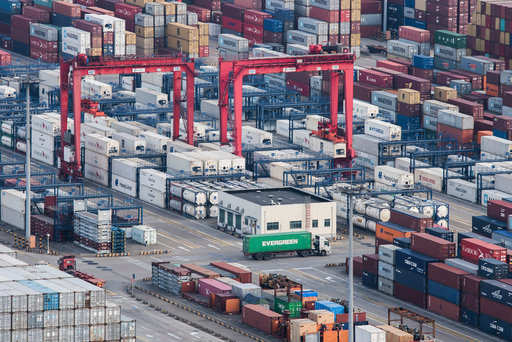INSUBCONTINENT EXCLUSIVE:
China took more steps to defuse trade tensions with the US, confirming it will remove the retaliatory duty on automobiles imported from
America and preparing to restart purchases of American corn.
The 25 per cent tariff imposed on vehicles as a tit-for-tat measure will be
scrapped starting January 1, the Chinese finance ministry said on Friday
China also may buy at least 3 million metric tonnes of American corn, said people familiar with the discussions, who asked not to be named
as the information is confidential.
The moves come two weeks after President Donald Trump and his Chinese counterpart Xi Jinping agreed to a
truce in the trade war at their meeting in Argentina
products that had been due on January 1
nextDespite the latest concessions, there remains doubt in Washington and Beijing over whether China is willing to water down its plans to
next week to decide economic policies for 2019
Their focus will be on how they propose to sustain stable growth when faced with both uncertainty from the trade war and from the slowing
domestic economy.
Doubt buildsThe temporary tax reduction for US car imports comes as China heads for its very first annual vehicle sales
six straight months after decades of almost uninterrupted growth
The move by China would reduce tariffs on cars made in the US to 15 per cent from the current 40 per cent, in line with what other countries
pay.
Corn ImportsThe corn imports are likely to start as early as January, following a revival of American soybean purchases, the people
The government is also considering various options for how to handle the 25 per cent retaliatory tariffs on American corn that China adopted
cutting recommended retail prices of its US-made vehicles in China to reflect the tariff reduction.
BMW and Daimler have been hardest hit by
the additional levies, shipping large numbers of sport utility vehicles from plants in the US to China
LMC Automotive.
For BMW, the punitive levies caused a hit of 300 million euros ($339 million) to its bottom line during the second half of
The trade tensions were a key factor in both carmakers cutting profit forecasts for the year.
Shares of BMW and Daimler, which import
thousands of SUVs into China from plants in the US, reversed earlier losses in Frankfurt on Friday tied to a weak European auto sales report
BMW closed 0.1 per cent higher, after falling as much as 2.4 per cent
In April, China announced a timetable to permit foreign companies to own more than 50 per cent of local vehicle-making ventures.
Longer
term, China has a lot to gain from free trade in autos as manufacturers such as Guangzhou Automobile Group Co
and Geely Automobile Holdings Ltd look to move overseas
The US currently charges a 27.5 percent tax on imported cars from China after adding a 25 per cent additional tariff during the trade row.

